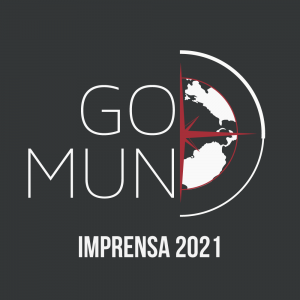After three press releases, the UNSC created a media crisis. And, of course, its sessions are highlighted by mistakes, confusion, and a terrible mess.
Talita Soares de Andrade
During the eighth UNSC session, the press was released from the debate. In other words, it was not allowed to continue watching the assembly. It is possible to say now that the members of the Council are not willing to take criticism and hear the voice of the people, preferring, instead, to just ignore all of the press and call it a privilege. Not a right nor a duty, a privilege. Bold, of course, and not diplomatic and democratic at all. But the position from UNSC is not surprising. However, before all this mess happened, there are some critical factors that need to be written.
First of all, the Philippines, Norway, Saint Vincent and the Grenadines, and Russia agreed to remove the specific topic in one of the Working Paper paragraphs. It wouldn’t be a problem if this one text was about controlling terrorism in refugee camps. The Philippines wanted to have a more general approach, however, the fact that they were not giving direct importance to this topic opens space to marginalize the ones inside the camps and put their safety in risk. When asked about it, the Philippines representative said it was focusing on the other countries of Southeast Asia. This is a very good answer, however, it does not solve the refugee crisis, which was not completely embraced by the final document.
Likewise, the USA proposed and urged, during the seventh session, to control the Philippines’ borders. This is not unexpected if the imperialist past — and present — of the US is remembered and considered. And, transpassing the line of intervention, the country also said the Philippino government should have sent data, information, and reports to the Council. No space for national sovereignty when talking about America and the UNSC.
When asked, the USA responded to GMZ that it made that paragraph together with the Philippines. Also that, in not a moment used the word “urge”, which is a lie. The word was used in the paperwork, perhaps changed later, GMZ could not know — it was released during the eighth and part of the ninth session. Not a very good answer.
Lastly, a compliment. A rare one. At least something good was taken from that Security Council mess. At the moment the topic was focusing on drugs and traffic on the Philippines’ border, Vietnam gave a very useful example of a Brazilian educational program against drugs: PROERD. With it as an inspiration and with propositions from Norway about how much education can help the area, maybe there will be a change there.
Despite all that was done to the media — for a second and third time —, GMZ’s work is with the truth and critical thinking. GMZ will always criticize what is wrong and nothing can stop it. Not even a — or two, or three — press release. And this situation creates a reflection about how much criticism UNSC can handle without getting its ego hurt. So sensitive…

